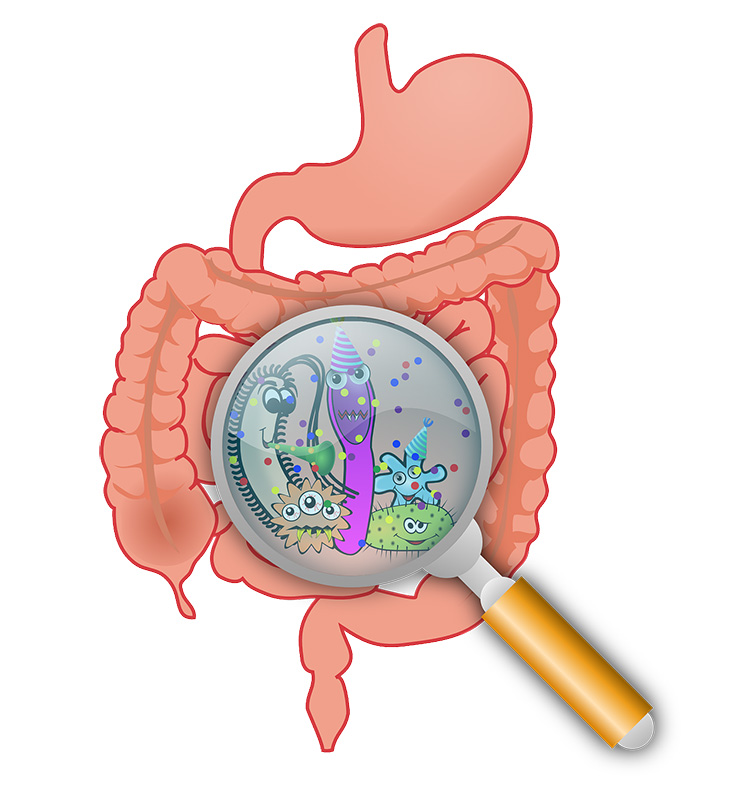How a bad diet impacts your mental health – and how to fix it
 It is well known that maintaining healthy gut bacteria improves your physical wellbeing but there is increasing evidence linking poor gut health to mental health issues such as anxiety and depression.
It is well known that maintaining healthy gut bacteria improves your physical wellbeing but there is increasing evidence linking poor gut health to mental health issues such as anxiety and depression.
The Black Dog Institute reports that one in six Australian workers suffers from mental illness, costing employers an estimated $8,025 annually per person. Mental health issues are the leading cause of absenteeism, costing Australian businesses around $12 billion annually.
Gut bacteria basics
Gut microbiota are microbes made up of trillions of microorganisms that live in the intestine. They perform vital functions including assisting with food digestion, producing vitamins B and K, hormone regulation, and supporting the immune and central nervous systems.
Research from the Clinics and Practice International Journal of Medical Case Reports has found that when these bacteria become unbalanced, inflammation of the gut occurs. This can cause not only gastrointestinal disease and other illnesses, but also anxiety and depression.
Referred to as the “gut-brain-axis”, medical professionals are now thinking of the gut as a second brain. This makes sense when you consider 2015 California Institute of Technology research which found the digestive tract produces almost 90 per cent of the body’s serotonin, the hormone responsible for our feelings of happiness, and wellbeing.
Causes and symptoms of bad bugs in your belly
Gut bacteria can be damaged by many things including:
- A bad diet high in sugar and processed and fatty foods, which increases the likelihood of illness, mood changes, irritability and fatigue at work.
- Over use of antibiotics and other prescription medications
- Chronic illness
- Prolonged stress
- Getting older
- Excessive alcohol consumption – also a leading cause of lost productivity and time off work.
If you’re feeling depressed or anxious, other symptoms that may indicate your low mood is linked to gut health include:
- Weight gain
- Bloating
- Fatigue
- Abdominal pain
- Reflux
- Flatulence
- Headaches
- Fatigue
- Joint pain
- Skin problems
- Immune system disorders
How to restore harmony
In instances where impaired gut health is the cause of depression and anxiety, Dr Raphael Kellman from the Kellman Center for Functional and Integrative Medicine, says, “This is different than what we typically associate with a psychiatric form of depression and these patients may not respond to standard anti-depressants.”
In his book The Microbiome Diet, Dr Kellman advises gut and mental health can be restored by a diet high in fresh foods with anti-inflammatory properties including:
- Fresh vegetables – especially beetroot, carrot, broccoli, cabbage, cauliflower and kale, spinach, onions, peas, salad greens, and squash
- Fresh fruits such as apples, blackberries, blueberries, cherries, nectarines, oranges, pears, pink grapefruit, plums, pomegranates, red grapefruit and strawberries
- Turmeric and ginger, basil, oregano, and thyme
- Probiotic supplements from your health food or chemist
- Probiotic foods such as yoghurt, kombucha, kvass, and kefir
- Wild ocean fish, not farmed
- Free range eggs
- Organic or grass-fed meat
- Good fats derived from avocado, coconut oil, olive oil, nuts and seeds
- Beans and legumes
- Fermented foods such as tempeh and miso
While it may seem hard at first to abandon your bad diet and other culprits negatively impacting your gut-brain connection, The Physicians Committee for Responsible Medicine has good news – by making positive changes to your diet you can begin cultivating healthy new microbiota in just 24 hours.
And while beers and burgers might be off the menu for a while – red wine and dark chocolate – in moderation – are not!








































































